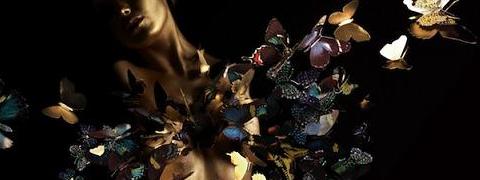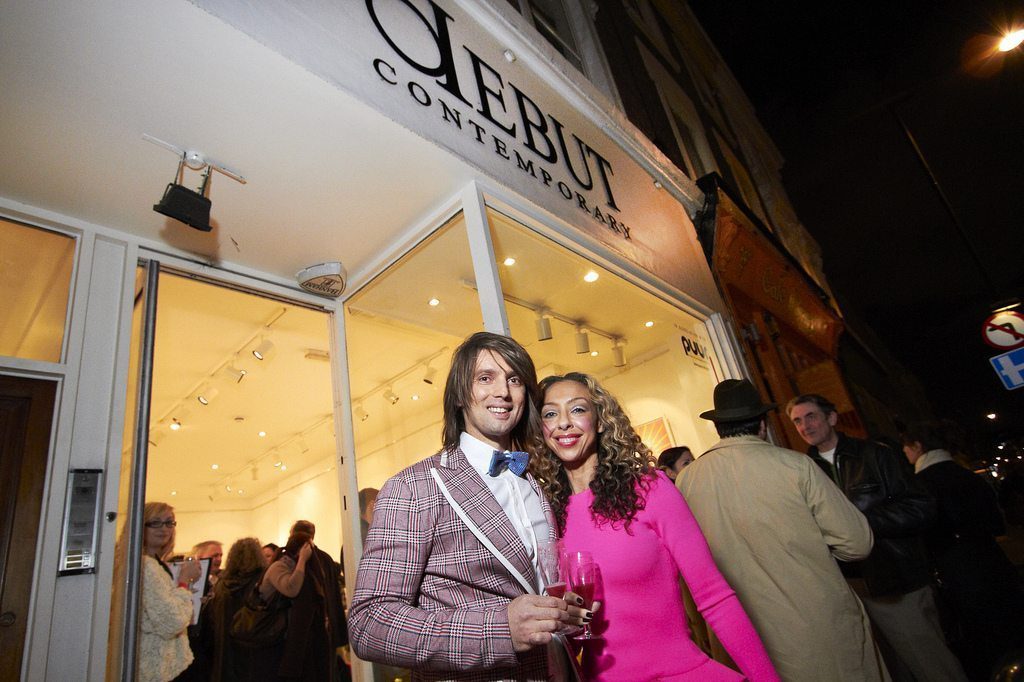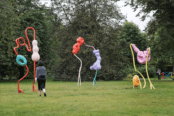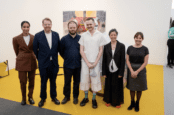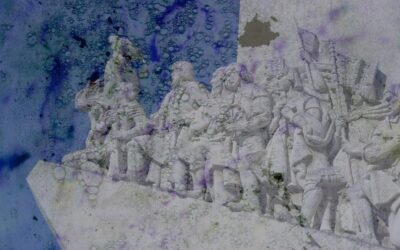[dropcap style=”font-size:100px; color:#992211;”]W[/dropcap]eekly workshops, media and marketing training, mentoring sessions.
Tucked into London’s Westbourne grove, Debut Contemporary takes an active approach to artist development.
The gallery has a lot to offer artists. Helmed by the husband/wife duo Samir Ceric and Zoe Knight (‘London’s top tastemakers’ – Time Out London), Debut Contemporary takes talented artists, whips some business sense into them, and gets their work onto the walls of its West London gallery.
It’s a pretty rock ‘n’ roll approach to visual art, but the thousands of applications they’ve had give testament to the demand for professional development opportunities in the contemporary art industry.
Rejecting the cliche of artistic empowerment-through-poverty is an act that may upset purists, and those who expect artists to starve in garrets. Debut Contemporary’s view though, is that lack of professional development has lost the art world decades-worth of talent.
Agree or disagree – that’s your prerogative. The relationship between fine art and the business of making a living has long been fraught, but if the tools exist, it makes sense to learn how to use them. Sometimes the tool is a paintbrush, sometimes it’s a Pinterest account. And it’s always worth wondering what Van Gogh might have painted if he’d had some better business advice.
Debut Contemporary’s Samir Ceric talks to Trebuchet.
What first drew you to art?
Art was always part of me. I was fascinated by it and I was fascinated by those creating art. I had no talent to even do a simple drawing hence, no surprises, I pursued studying Mathematics instead, something I had talent for. And believe it or not, I loved it.
How did your gallery start?
The current one (Debut Contemporary) started as a result of a journey a few years prior. Back in 2005 I founded Salon Contemporary which was focused on discovering talent fresh out of UK art schools. I felt there was not much space in West London, or in the art industry as a whole, for talent coming fresh out of our leading art schools in the UK, hence Salon Contemporary was born.
That was followed by a short spell in fashion and design industry (whilst Salon was still going) where two of my ‘old’ collectors approached me with an idea of a serviced retail space for young emerging fashion and product designers, as well as jewellers.
My wife, Zoe Knight, who is a renowned fashion designer (having worked for Jimmy Choo, Chloe, Anya Hindmarch, Paul Smith to name a few) and I felt strongly about an initial concept, improved it slightly by introducing professional development and mentoring, in addition to the retail space in a prime location of Notting Hill (on Ledbury Road where you can find Matches, and Josef around the corner on Westbourne Grove) and co-founded it with the Graham brothers, George and Henry.
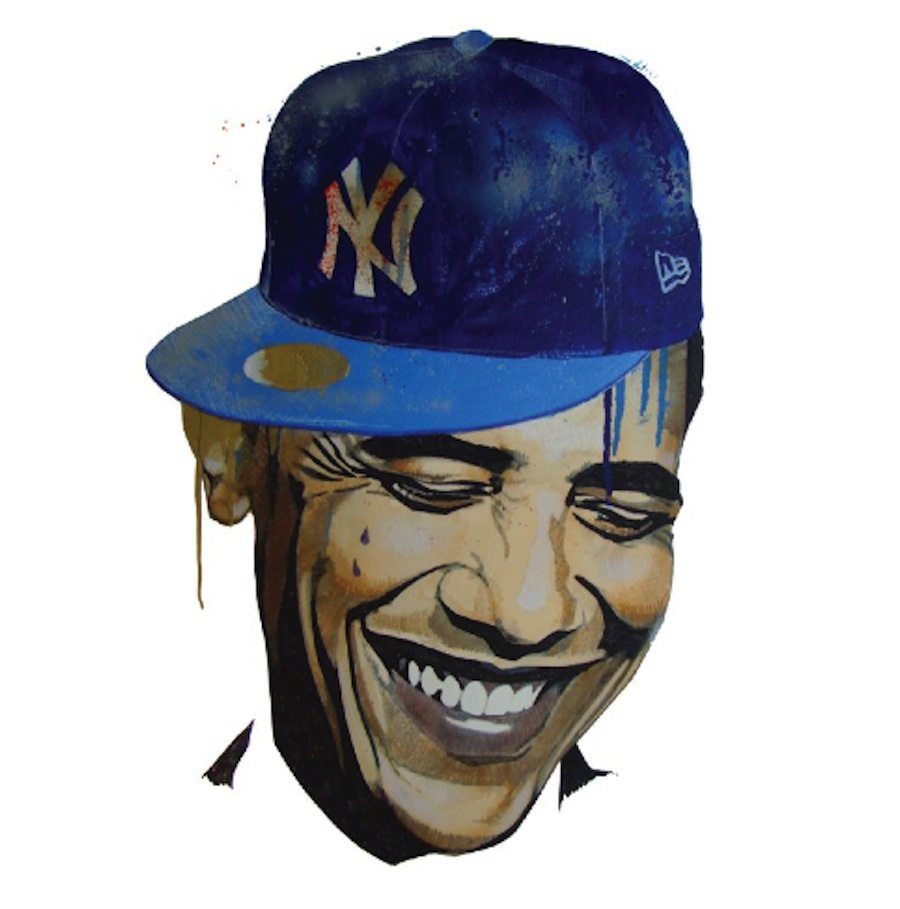
Ben Levy BARACK NY. 2012. Acrylic & spray paint on MDF
The business became an overnight success at the forefront of the fashion industry, trendsetting all over the world. We were lucky to have been mentored by the likes of John Ayton (who co-founded Links of London with his wife Annoushka Ducas and sold it for £50 million three years ago) and Lucia van der Post, a luxury commentator and an industry heavyweight (also behind the launch of the FT’s How To Spend It).
When we won the Walpole Brand of Tomorrow, a prestigious industry award for the luxury industry, Zoe and I then left Wolf & Badger to launch Debut Contemporary on Westbourne Grove, Notting Hill. It’s a professional development and career empowerment platform for all ambitious and talented artists interested in turning their creative practice into a viable business.
We organise regular weekly workshops ranging from PR & marketing, to social media, IPRs and copyrights, artist resale rights, accountancy, financial planning and business planning; to how to more successfully approach gallerists, curators and collectors as well as how to successfully build long term professional relationships that will assist creatives in becoming more successful and more established in the process.
We also do regular personal 1-2-1 mentoring with each artist we are working with, focusing on their wants and needs as well as ambition and aspiration by creating a practical, tangible plan of action how to achieve it.
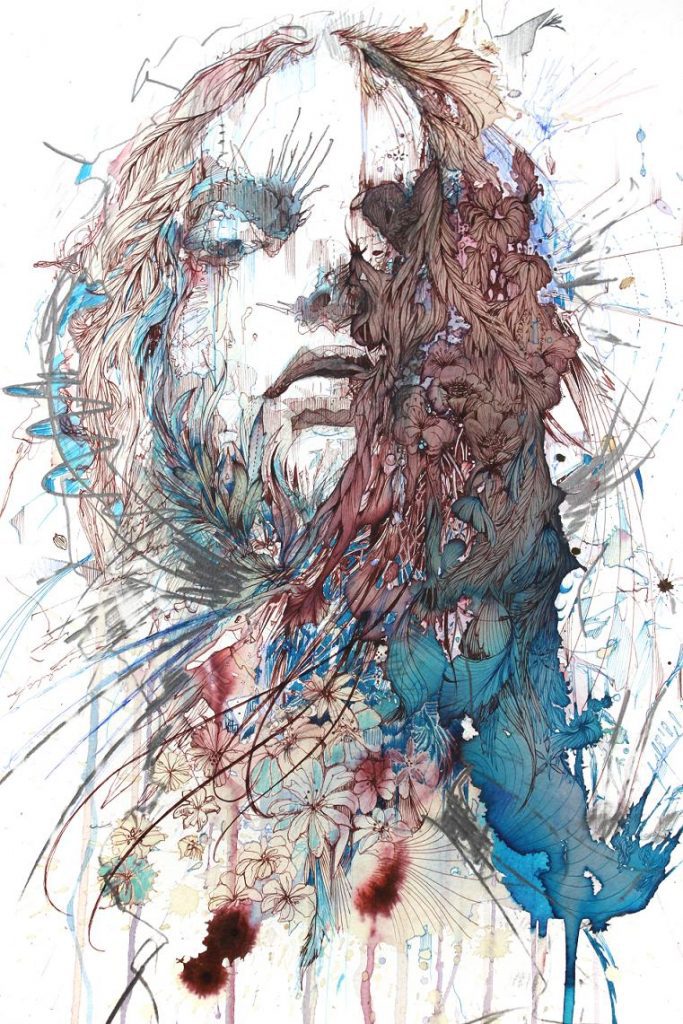
Carne Griffiths Beautiful Decay 2012.
How did you involvement begin?
As explained, my involvement began as I felt there was a need to do something different in the art industry, both through Salon Contemporary from 2005-2010 and Debut Contemporary from 2010 onwards. One of our main goals is to introduce a new value system for artists both in the art industry as well as the business world.
Artists today are incredibly smart, knowledgeable and skilful and have a great deal to offer to the business world, not only by aiming to sell their artworks but also their approach to problem-solving, their creative minds and the ability to think outside the box.
What is the vision for Debut Contemporary?
We want to continue discovering amazing British and international talent and to continue helping them become more successful, more knowledgeable and more informed, in order to fully control their futures and their creative practices. We are currently in talks with the London Business School and their Arts Club, Investment Club and Entrepreneurs Club, and this collaboration is going incredibly well. It will see me giving talks on opportunities to invest in young creative start-ups.
We are also exploring options to pick the brains of very knowledgeable MBAs and assist artists to create feasibility studies that would lead to the creation of business plans, which would then be turned into the investment plans necessary to raise investment in artists’ businesses, ranging from £10,000 to £250,000, all dependent on the assets artists might possess.
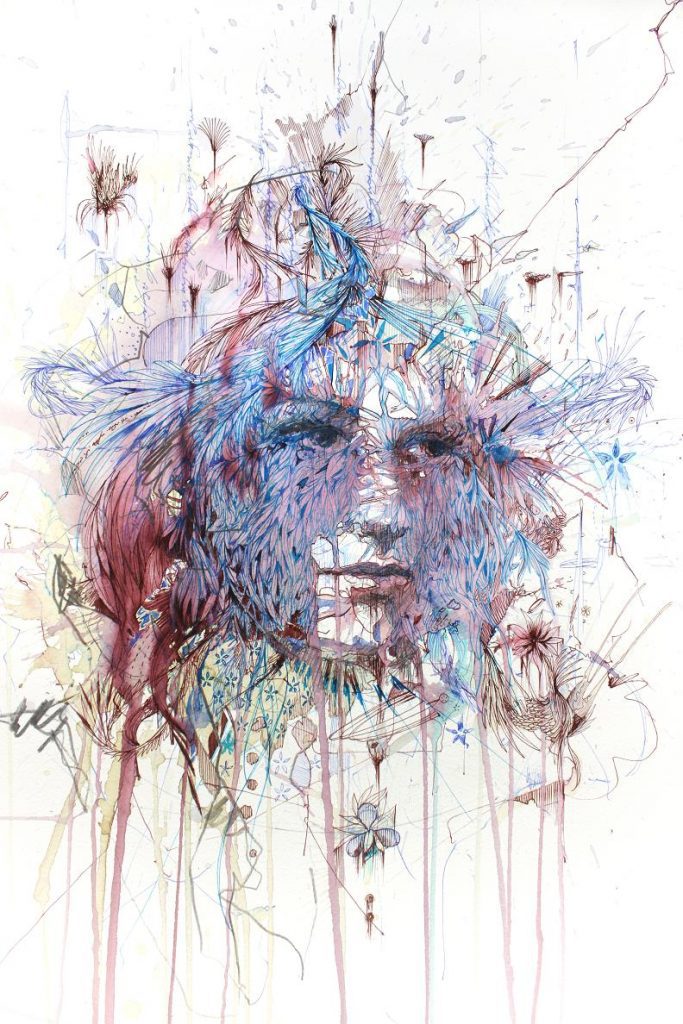
Carne Grifftihs The Miracle 2012
Which artists typify the vision you have for your gallery?
Those who are successful, knowledgeable, proactive, visionary, inspiring, giving and sharing. In terms of time, money and knowledge.
What do you dislike most about art?
I don’t dislike anything about art. I dislike a number of things about the art industry and the way it’s been run for centuries. I dislike a notion that artists are not business-savvy and should stay in the studio, painting. As I said earlier on, artists are incredibly smart and they learn very fast. They can easily be taught how the system works and how best to protect themselves when in negotiation with other important industry players such as gallerists, curators, collectors, auctioneers, critics, etc….
The question remains, do we want them to learn or do we prefer to keep them in the dark? Today, the choice is theirs, not anybody else’s. And the market is global. We work with some of the most influential and powerful collectors from India, China, Korea, the Middle East, Brazil, The US, and Europe, and we share the same vision with many of them. Things are changing and they are changing very fast. And this is the most exciting time for artists, ever.
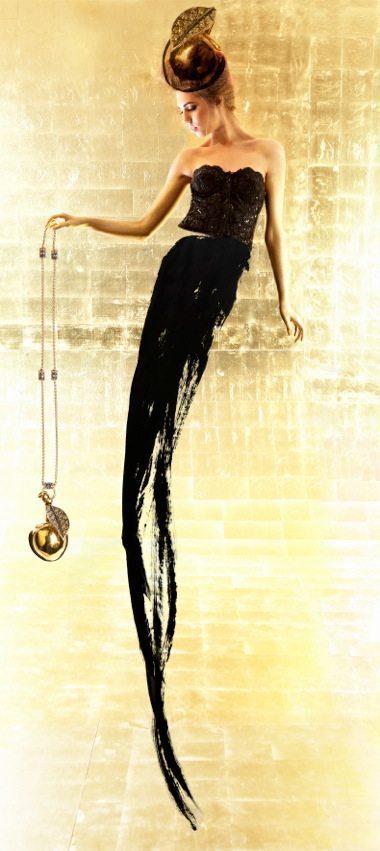
Rosie Emerson, Ornament of Alchemy-4 Amber
How would you define artistic controversy?
Just like any other controversy. There is good and bad, and it’s really down to you how you see it and how you define it. It works for some, and less so for others.
Do you think that controversy in is a positive force in art or a conceptual red herring?
As I said, it can be both. I am not a huge believer in controversy, however, if it is a means to an end and achieves positive results because of that, great. And why not? Who am I to say it’s great or it’s rubbish? Art is a very personal thing, isn’t it? Luckily we don’t all have to agree on what we like and what we dislike.
What’s been your biggest challenge?
There have been many challenges. There always are when you are doing something new, something innovative. Perhaps convincing the industry players that there is a need for professional development in the art industry. Why shouldn’t it be? It happens in fashion, design, film, music and business as a whole. In my view, effort cannot be spared there if artists want to be successful and in control of their futures, not only financially, but creatively and artistically too.
Art knows no borders and has a magic power. It’s down to us to present it that way and effect our own little positive change in today’s society. It’s never too late and it’s never too early.
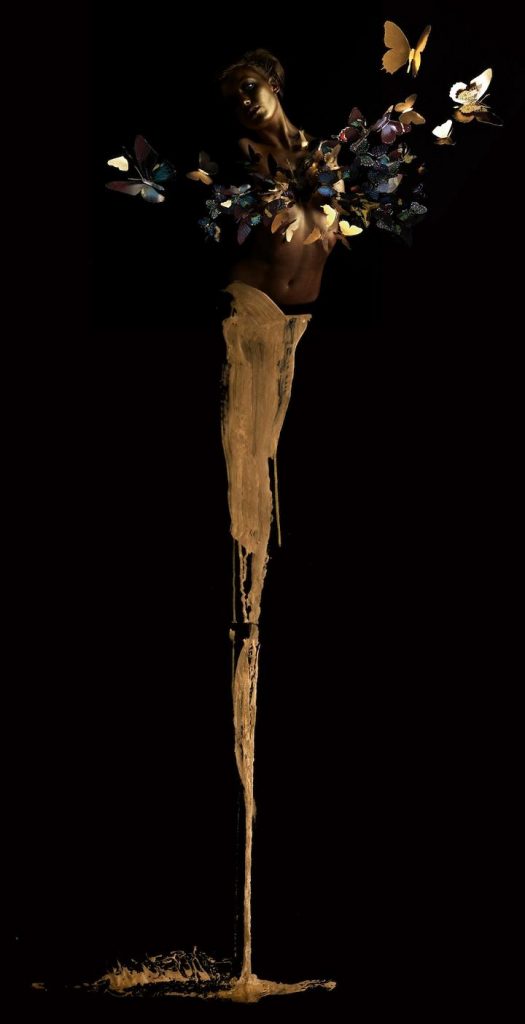
Rosie Emerson Ornaments of Alchemy-2 Daisy-Lowe 2011
What’s been your biggest success?
The success behind Wolf & Badger in 2010 and the success to date behind Debut Contemporary. I feel we have just begun and there is so much more to achieve. But more than business, my three beautiful children, Farrah, Raif and Maximus, and my beautiful wife Zoe.
Who are you five favourite artists and which pieces of theirs do you admire?
I often talk about the Last Supper and da Vinci, as well as many modern interpretations of the piece. I am not very good in identifying one favourite piece as I like so many that move me in a different way. From Rembrandt to Bacon, from Walhole to Opie. And many more things in between.
Who do you think is the artist to watch at the moment and why?
There are quite a few that have come out of Debut Contemporary in the last 12 months. Carne Griffiths, Rosie Emerson and Ben Levy are some of these guys. They all share the same passion for what they do, they are incredibly, insanely talented, they work both very hard, are very smart, and they are the loveliest people to work with. And not to forget their level of professionalism, which you can’t fault.
What does the future hold?
So much excitement in the art industry. As I said earlier on, it has never been more exciting to be an artist. Opportunities are immense, they are global and with a little bit more planning and strategizing, a bit more knowledge, information and know-how, when it comes down to how to navigate the art system, artists can become the next big thing.
[quote]Opportunities are immense, they are global[/quote]
The art industry could see the biggest financial investment ever recorded, in tens of billions of pounds, and not in your investable, A-list art, but in emerging artists and their art businesses.
However, nobody will do it for them. They need to find a way to DIT (Do It Themselves). And that is where Debut comes in, and hopefully many more platforms designed to assist artists in becoming more successful. One of our big goals and ambitions is to inspire other individuals and organisations to offer a similar scheme to ours, as we’ve only been able to look after 100+ artists in the last two years, despite the fact that we’ve had close to 7,000 applications to date (in addition to directly scouting around 350 artists ourselves).
[button link=”http://www.debutcontemporary.com/” newwindow=”yes”] Debut Contemporary Homepage[/button]

The aim of art is to represent not the outward appearance of things, but their inward significance. – Aristotle

